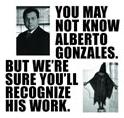If I’m taking the lazy blogger’s path lately — turning The Picket Line into a barely-annotated linkfarm — I’ll put the blame on Adam Hochschild, who wrote the book Bury the Chains that I got as a Christmas gift.
Here’s the quick version of why this book is capturing my attention:
[P]icture the world as it existed in . Well over three-quarters of the people on earth are in bondage of one land or another. In parts of the Americas, slaves far outnumber free people. African slaves are also scattered widely through much of the Islamic world. Slavery is routine in most of Africa itself. In India and other parts of Asia, some people are outright slaves, others in debt bondage that ties them to a particular landlord as harshly as any slave to a Southern plantation owner. In Russia the majority of the population are serfs. Nowhere is slavery more firmly rooted than in Britain’s overseas empire, where some half-million slaves are being systematically worked to an early death growing West Indian sugar. Caribbean slave-plantation fortunes underlie many a powerful dynasty, from the ancestors of Elizabeth Barrett Browning to the family of the fabulously wealthy William Beckford, lord mayor of London, who hired Mozart to give his son piano lessons. One of the most prosperous sugar plantations on Barbados is owned by the Church of England. Furthermore, Britain’s ships dominate the slave trade, delivering tens of thousands of chained captives each year to French, Dutch, Spanish, and Portuguese colonies as well as to its own.
If you had proposed, in the London of , to change all of this, nine out of ten people would have laughed you off as a crackpot. The 10th might have admitted that slavery was unpleasant but said that to end it would wreck the British Empire’s economy. It would be as if, today, you maintained that the automobile must go. One in ten listeners might agree that the world would be better off if we traveled instead by foot, bicycle, electric train, or trolley, but are you suggesting a political movement to ban cars? Come on, be serious! Looking back, however, what is even more surprising than slavery’s scope is how swiftly it died. By , slavery was, at least on paper, outlawed almost everywhere.
It’s more gripping than a “who dunnit,” and I’m eager to get to the “how they dunnit?” Chances are I’ll report on some of what Hochschild found out, so stay tuned.

